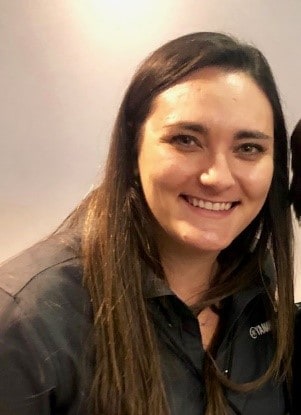Break Through Value Based Payments
THE VBP Blog
Looking at States' Managed Care Programs: Iowa and Tennessee
Managed care has been a slow mover for the I/DD population in multiple states. As of 2019, there are 229,817 Medicaid consumers with an intellectual/developmental disability (I/DD) enrolled in Medicaid managed long-term services and supports (MLTSS) programs. In fact, only ten states have adopted a policy for populations with special needs at all. As stated in our last blog, managed care for the I/DD population is the largest challenge to date.

The need for lifelong care, high levels or care, and the Managed Care Organization’s (MCO’s) lack of experience with this community has made transitions difficult. In this blog, we are going to take a deeper look at two states: Iowa and Tennessee. One has seen immense success with their roll out for the I/DD population, while the other has seen hurdle after hurdle for their consumers. We were able to pull some incredible insights from the Ancor 2018 White Paper and took a deep look into these two states’ structures, what works and what has been less successful, and more importantly – why.
Tennessee Managed Care
Tennessee has built a pretty incredible structure and took on an incremental approach starting back in 1994 with TennCare. In 2010, they launched CHOICES, an MLTSS program for older adults and people with physical disabilities. In 2016, they took in managed care with their Employment and Community First (ECF) CHOICES program. They took another incremental approach with the roll out of ECF by (1) allowing stakeholder engagement efforts, allowing them to help guide the development of the eventual I/DD program and (2) allowing the current MLTSS beneficiaries to stay on the current HCBS waiver while allowing those on the waiting list and anyone who wanted to try the new ECF CHOICES program to do so. They stayed with the same 3 MCO’s they already were using for the TennCares and CHOICES programs to help make the transition even easier. They also required extensive support coordination training to help family supports, independent living, employment, etc.
The ECF Choices program had a few major goals: to reduce the waiting list and leverage managed care to build a system that would help this community get employment and be involved in the community. To support these goals, they set 10-day and 30-day timelines to get care set for any individual. They also required an Employment and Informed Choice program to help with support needed. Tennessee has made adjustments along the way, shifting the service structure and prioritizing family supports and community integration.
Iowa Managed Care
Iowa made the shift to private managed care in 2016, naming their program IA Health Link. This shift involved 600,000 I/DD individuals under the care of 3 MCOs. Their statewide, fully integrated, mandatory, managed care program for all services and populations (including LTSS and I/DD) had a goal of improved quality and outcomes while maintaining a sustainable budget and of course, had an aggressive cost savings goal. The initial MLTSS enrollment had 36,825 people enrolled in 2016 with 63.2% of enrollees receiving services in the community. The then-hired 3 MCO’s took different approaches on how to handle case management. Two of them hired internal case managers and fielded their own teams while the third established contracts with existing case management entities. At the last minute prior to roll out, Iowa tried to “smooth transition” by requiring MCO’s to contract with existing case management entities for the first year, relying on the relationships already built to help ease the new processes. In turn, that created a disparity in enrollment and left two of the MCO’s with far fewer LTSS enrollees.
To say it has been unsuccessful would be an understatement. All the MCO’s have reported significant losses and Amerigroup called it a “catastrophic experience” in an official document. While rates were allowed to be set by the MCO’s, many stuck with the minimums allowed and thus ended up underfunded. One MCO, AmeriHealth Caritas, decided in late 2017 to exit the market all together. The exit left the market disrupted and shifted a heavy case load onto the other MCO’s. At one point, Amerigroup said they could not take on any more members due to the increase.
The poor transition has resulted in lawsuits as well. Many services that were provided when the programs were state-run have been cut and populations are left with insufficient care. In 2017, Disability Rights Iowa and the National Health Law program filed a class action lawsuit against Iowa on behalf of 6 Iowans. An article by the Des Moines Register laid out some of the more personal stories behind the I/DD community and their struggles with the new IA Health Link program.
As we look at both of these models, there are a few obvious differences. TN used an incremental approach that focused on reducing wait times and building an employment and community structure for the individual they are serving. Iowa on the other hand, focused on reducing costs and launched their program in one swift action causing much turmoil. At the end of the day, there is much to be learned from both of these models.
Advocate’s perspective:
While design and operational learning experiences are valuable, the advocates will always focus on the impact on the lives of the people we serve. We recognize that in the long run managed care is designed to address budgetary concerns, but we also see the need to recognize that people’s lives can be significantly disrupted when the roll-out of managed care is abrupt, reflexive, changing without notice. We are not opposed to managed care. We want to be involved in the thoughtful process of rolling it out, with a clear objective of improving quality of life as well as saving money.
As we get ready to celebrate Thanksgiving, we are grateful for the bounty in our lives and thankful that we can share and express perspectives with you. Thank you for being part of our community!
Onward!
Fady Sahhar and Mandy Sahhar

About the Author
Fady Sahhar brings over 30 years of senior management experience working with major multinational companies including Sara Lee, Mobil Oil, Tenneco Packaging, Pactiv, Progressive Insurance, Transitions Optical, PPG Industries and Essilor (France).
His corporate responsibilities included new product development, strategic planning, marketing management, and global sales. He has developed a number of global communications networks, launched products in over 45 countries, and managed a number of branded patented products.

About the Co-Author
Mandy Sahhar provides experience in digital marketing, event management, and business development. Her background has allowed her to get in on the ground floor of marketing efforts including website design, content marketing, and trade show planning. Through her modern approach, she focuses on bringing businesses into the new digital age of marketing through unique approaches and focused content creation. With a passion for communications, she can bring a fresh perspective to an ever-changing industry. Mandy has an MBA with a marketing concentration from Canisius College.